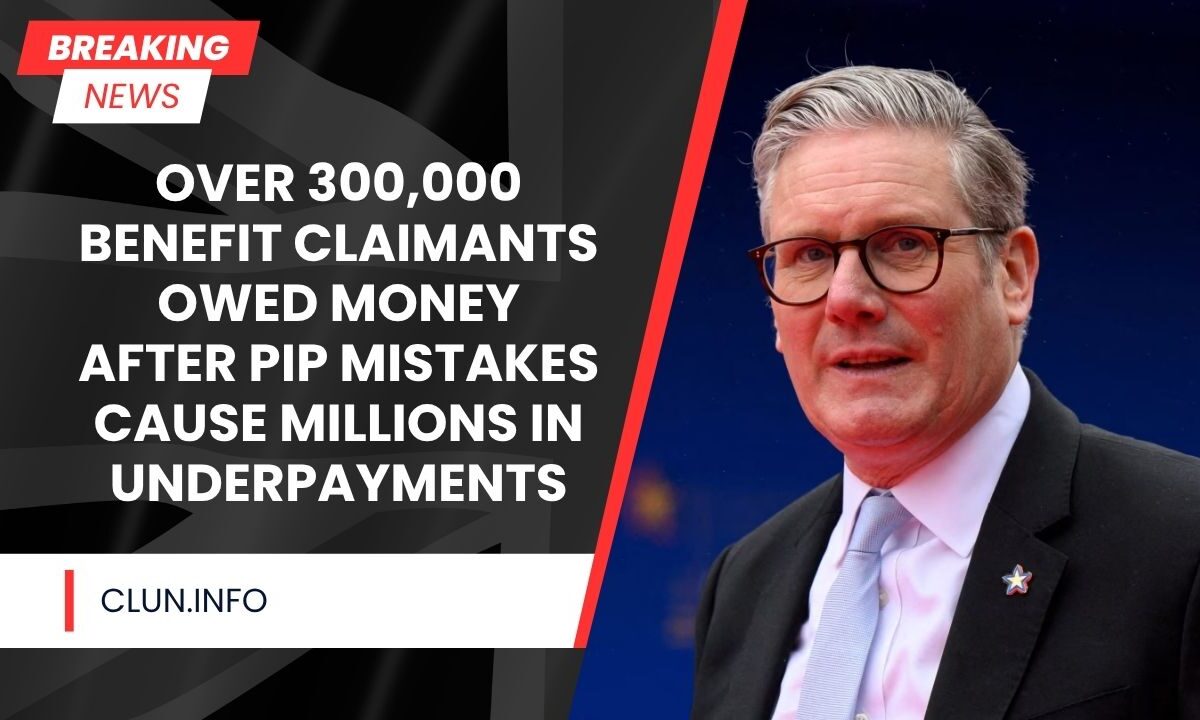The Department for Work and Pensions (DWP) has acknowledged significant mistakes in the distribution of Personal Independence Payment (PIP), leaving hundreds of thousands of disabled individuals underpaid or wrongly denied benefits.
So far, more than £260 million has already been distributed to correct past mispayments. However, over 300,000 PIP claimants are still waiting for compensation, with individual amounts potentially exceeding £2,000.
Understanding PIP and Its Purpose
PIP is a vital disability benefit received by around 3.7 million people in the UK. It helps individuals manage the additional living costs associated with long-term illnesses or disabilities.
Recently, the benefit became central to proposed welfare reform discussions by the Labour Party—although the plans were ultimately retracted by the government.
Three Major Administrative Errors Identified
According to the DWP’s latest annual report, three distinct administrative errors in PIP processing were revealed—two of which were newly discovered. These oversights have triggered multiple repayment initiatives.
1. Supreme Court Ruling on Social Engagement Criteria
The most widespread issue stems from a Supreme Court decision that revised how the DWP should assess a claimant’s ability to interact with others in person. This change made the criteria more lenient, affecting approximately 325,000 individuals.
- Cases reviewed: 308,000
- Total paid out: £250 million
- Average compensation: At least £800 per claimant
- Cases remaining: ~17,000
Not all reviews result in a payout, suggesting the true average payout could be even higher.
2. Incorrect Processing Due to Missing National Insurance Numbers
Another error involved PIP applications that didn’t include a National Insurance Number (NIN)—even though it’s not mandatory for application. These claims were processed incorrectly, resulting in underpayments.
- Cases reviewed: 455
- Total compensation: £500,000
- Average payout: Around £1,098 per person
3. Transition from PIP to Adult Disability Payment in Scotland
The third issue affected Scottish residents who moved from PIP to the Adult Disability Payment, the replacement benefit in Scotland. A total of 4,867 claimants were flagged as possibly having their payments paused during the transition.
- Cases reviewed so far: 4,691
- Pending reviews: 176
- Total compensation: £13 million
- Average payout: At least £2,771 per claimant
Ongoing Criticism and Government Response
These ongoing problems have intensified criticism of the government’s handling of disability benefits, especially PIP. Although Labour abandoned proposed reforms that would have made PIP harder to access, the scrutiny remains.
A formal review of PIP’s effectiveness in meeting claimants’ needs has been initiated, led by Social Security Minister Stephen Timms.
The DWP stated:
“We are fully committed to identifying claimants that are owed money and providing the financial support to which they are entitled as quickly as possible.”
The DWP’s admission of major errors in the handling of Personal Independence Payment underscores the importance of administrative accuracy in the UK’s social security system. With over £260 million already repaid and thousands still awaiting compensation, the issue remains urgent.
As the government works to resolve these mistakes and improve support systems, disabled individuals affected by these failures are urged to remain informed and seek updates regarding their potential entitlements.
FAQs
How do I know if I’m owed back payments from PIP?
If you were previously denied PIP or suspect underpayment, especially between 2013 and 2019, you may be eligible. The DWP is reviewing affected cases automatically, but you can also contact them directly.
When will the remaining 300,000 cases be resolved?
There’s no exact timeline, but the DWP is actively reviewing them. Updates may be provided through official government portals or by contacting the DWP.
Can I claim compensation even if I didn’t provide a National Insurance Number in my application?
Yes, if your application was processed incorrectly due to a missing NIN—which is not required—you may be eligible for back pay. The DWP is addressing this issue as part of their correction effort.




